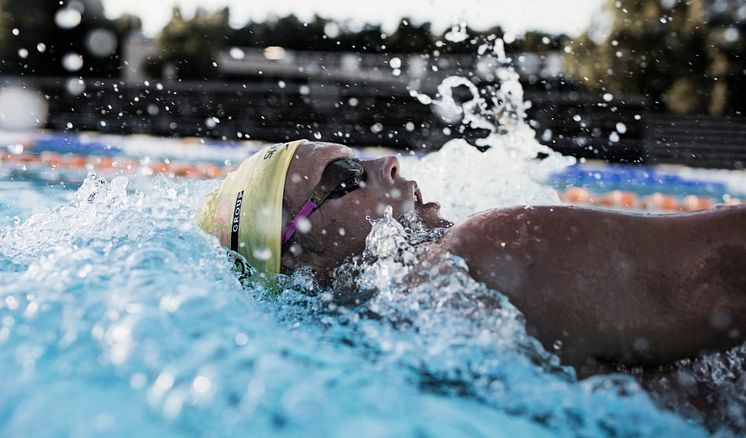
Dive in!
Some people swim for pleasure. Some to relax. Some to get or stay fit. I swim because it’s my life and passion. And I have a Big Dream. To compete in the Tokyo 2020 Olympic Games. That’s a big mission that’s going to demand a huge effort, both physical and mental. And I want to welcome you to join me on my journey by following this monthly blog. I hope also to give you some useful tips that may help you too in your own swimming and how to identify and master – patiently – the critical skills needed to swim faster.
The great thing about swimming is that improvement it is learnable. And a quick secret I’m happy to share with you is that a lot of success comes from managing the efficiency of your strokes. Fewer, more consistent and longer strokes help improve performance and endurance like nothing else. Getting your strokes right will reduce energy waste, which translates into improved efficiency and endurance in slicing through the water.The kind of skills that helped me win seven amazing medals (two gold, two silvers and three bronze) in the Swedish National Swim Championships in early November.
Intense! That’s the best way I can describe the kind of training schedule I and all my colleagues follow. I do pool workouts six days a week, twice a day, sometimes starting at 6 am or 7 am in the morning. Each training program varies, some are about developing power and speed, others are about developing aerobic capacity by swimming up to 10,000 meters (6 miles) per single session. And I also run, lift weights and do some yoga.
Top class swimmers need to be strong and powerful, but not have too much muscle mass, which can slow you down in the pool. Getting the fuel right for all the training is important. I need up to 7,000 calories a day during intensive workout periods, so my nutrition coach is as important almost as my swim coach. My favorite meal is Tacos. Then, about a month before a big event, I tend to taper down my activity so that I am really wired on the days of competition.
Hydration is vital. It may seem strange considering that swimmers spend so much time in the water, but staying hydrated is really important for anyone swimming seriously, and especially competition swimmers. Staying well hydrated helps improve performance and prevent muscle cramps.
Even though many don’t realize it, you sweat when swimming. Staying hydrated helps your kidneys stay healthy, which is good because they produce red blood cells that impact performance, aerobic fitness and oxygen consumption. That’s why I was very happy when Bluewater stepped in to partner with me as the water they generate is fresh and contaminant free. Good for my body and good for my performance.
Thanks for reading this first blog, I’ll be back with some more insights into the wonderful world of swimming next month.
– Adam